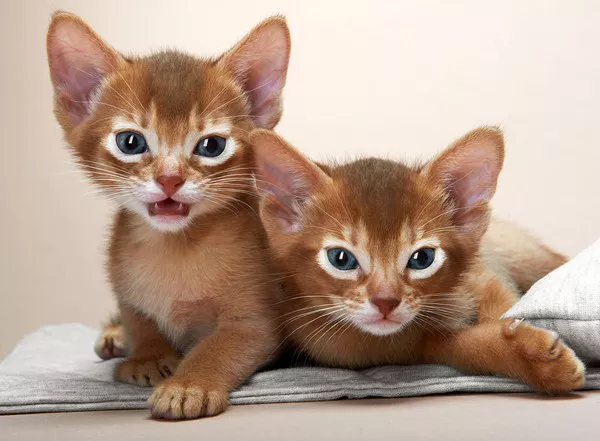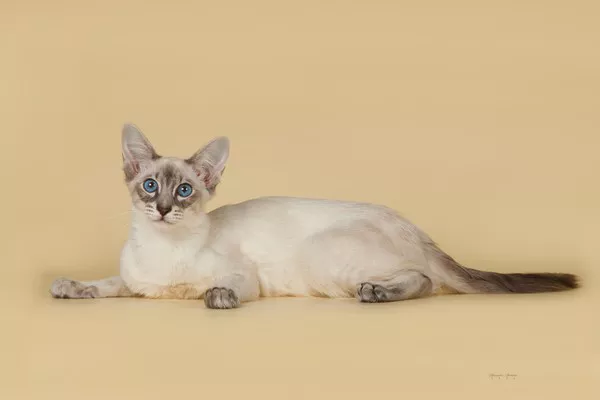As a devoted cat owner, there’s nothing quite like the joy of cuddling up with your feline friend. However, if you’ve noticed an unpleasant odor emanating from your cat, you’re not alone in your concern. Cats, like any other pets, can sometimes develop odors for various reasons. In this article, we explore the potential causes of your cat’s stinky situation and offer practical solutions to help you and your furry companion enjoy a fresh and pleasant-smelling home environment.
Causes of Cat Odor
1. Poor Grooming Habits:
Cats are known for their meticulous grooming routines, but there are instances when they might not be able to keep up due to age, health issues, or obesity. A lack of regular grooming can lead to an accumulation of dirt, oils, and dander, resulting in an unpleasant odor.
2. Dietary Factors:
Believe it or not, your cat’s diet plays a significant role in how they smell. Low-quality or imbalanced diets can lead to digestive issues, causing foul-smelling gas and stool. Additionally, certain foods can affect the overall scent of your cat’s coat.
3. Dental Problems:
Oral hygiene is crucial for cats, and dental issues can cause bad breath that contributes to an overall unpleasant smell. Periodontal disease and tooth decay can result in foul odors that linger in your cat’s mouth.
4. Urinary or Fecal Accidents:
Accidents outside the litter box can happen for various reasons, including medical problems or stress. Urine and fecal matter left unattended can create strong odors in your home.
5. Skin Infections or Parasites:
Skin infections, fungal growth, and infestations of parasites like fleas or mites can lead to itching and scratching. This can damage the skin and create an environment for bacteria to thrive, causing a distinct odor.
Solutions for a Fresher-Smelling Cat
1. Regular Grooming:
Help your cat maintain their hygiene by regularly brushing their coat. This not only removes dirt and excess hair but also stimulates blood circulation, promoting healthier skin and fur. If your cat struggles with grooming, consider gentle wipe-downs with pet-safe wipes.
2. High-Quality Diet:
Consult your veterinarian to choose a well-balanced and high-quality cat food. Proper nutrition not only improves your cat’s overall health but can also positively impact their coat and skin condition.
3. Dental Care:
Incorporate dental care into your cat’s routine. Use veterinarian-approved dental treats and toys, and schedule regular dental check-ups to address any potential oral health issues.
4. Litter Box Management:
Ensure the litter box is clean and scooped regularly. If your cat is experiencing litter box aversion, consider factors such as box location, type of litter, and the number of boxes available.
5. Veterinary Check-Up:
If you’ve tried various solutions and the odor persists, consult your veterinarian. They can rule out any underlying medical conditions that might be contributing to the smell.
6. Parasite Prevention:
Keep your cat up-to-date on parasite prevention treatments. Regular flea and tick control measures can help prevent skin irritation and infestations that lead to odor.
Prevention Is Key
Preventing cat odor is often easier than dealing with it after it has developed. By focusing on your cat’s overall well-being and hygiene, you can ensure a pleasant living environment for both you and your furry friend. Regular veterinary visits, a balanced diet, and diligent grooming practices go a long way in maintaining your cat’s fresh scent and promoting their health.
Remember, each cat is unique, and factors contributing to their odor may vary. Observing their habits, addressing any changes promptly, and providing them with the care they need will help you and your cat enjoy a wonderful companionship without the unwanted stink.
FAQs About Cat Odor
Q1: Can stress or anxiety contribute to cat odor?
A1: Yes, stress and anxiety can affect a cat’s behavior and hygiene routines, leading to odor issues. Creating a calm and enriching environment, providing hiding spots, and using pheromone diffusers can help reduce stress-related odor problems.
Q2: Can my cat’s diet impact their odor?
A2: Yes, a cat’s diet plays a role in their scent. Low-quality or imbalanced diets can lead to digestive issues, causing unpleasant gas and stool odors. Opt for high-quality cat food with proper nutrients to support a healthier coat and overall well-being.
Q3: How can I combat bad breath in my cat?
A3: Bad breath can result from dental issues. Regular dental care, including brushing your cat’s teeth and providing dental treats, can help prevent odorous breath. Consult your vet if the issue persists, as it could signal dental problems.
Q4: My cat has an outdoor adventure but comes back with a strong smell. What should I do?
A4: Outdoor activities can expose your cat to various scents and substances. If your cat comes back with an unpleasant odor, consider using cat-safe wipes for a quick clean-up. If the odor persists, a professional grooming session might be necessary.
Q5: How can I keep my cat’s litter box from smelling up the house?
A5: Litter box odor can be managed by scooping waste daily and changing the litter regularly. Place the litter box in a well-ventilated area, and consider using odor-control litter. Multiple litter boxes in different locations can also help distribute the scent.
Q6: What can I do about my cat’s “spraying” behavior?
A6: Spraying, or marking territory with urine, can result in strong odors. Spaying or neutering your cat can often help reduce this behavior. Consult your vet for advice on managing spraying and neutralizing odor in affected areas.
Q7: How often should I bathe my cat to prevent odor?
A7: Cats generally groom themselves well, so frequent baths are unnecessary and can even lead to skin issues. Unless your cat gets into something particularly dirty, occasional baths every few months should suffice. Focus on regular brushing instead.
Q8: My cat’s ears emit a foul odor. What could be the cause?
A8: Foul-smelling ears could indicate an ear infection or ear mites. It’s important to have your cat’s ears examined by a veterinarian. They can recommend appropriate treatment to address the issue and eliminate the odor.

























